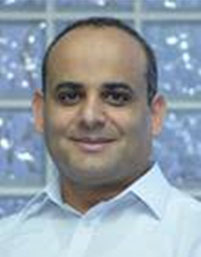Biosensors
Biosensors
Biosensors are devices that produce a measurable signal proportional to the concentration of the target analyte, usually incorporating a biological sensing element and measuring signals derived from biological interactions. (Turner, 2013).
At Alfaisal University, the BioSensors, BioMEMs, and BioNanoTechnology (BBB) research group focus on the development of novel rapid diagnostic assays and tools for various biomedical, food, veterinary, environmental, and security applications. The BBB has about 20 researchers working on various projects related to food, biomedical, security, and environmental applications.
Domains of interest include
- Development of various sensors (transducers), including optical, electrochemical, colorimetric, paper, and soft-based substrates.
- Recognition elements: immunoassays, aptamers, bacteriophage, phage display, MIPs
- Lab on a chip and microsystems for samples processing and clean up
- Employing nanotechnology in diagnostic assays ad biosensors to improve the detection limit, shorten the analysis time, and reduce non-specific adsorption to reduce the false positive results.
- Developing organ-on-a-chip and human-on-a-chip technologies for drug screening to eliminate animal testing.
BBB Group Services
- Developing biosensors and rapid diagnostic assays
- Developing synthetic recognition receptors which are superior to the natural recognition elements
- Oligos synthesis
- Peptide synthesis

Director of BioSensors, BioMEMs, and BioNanoTechnology Group
Prof. Mohamed Zourob College of Science
Dr. Zourob has published more than 150 scientific papers in peer-reviewed journals, more than thirteen book chapters, and thirteen patents. He edited seven books on chemical/biosensors, microarrays, and lab on a chip.